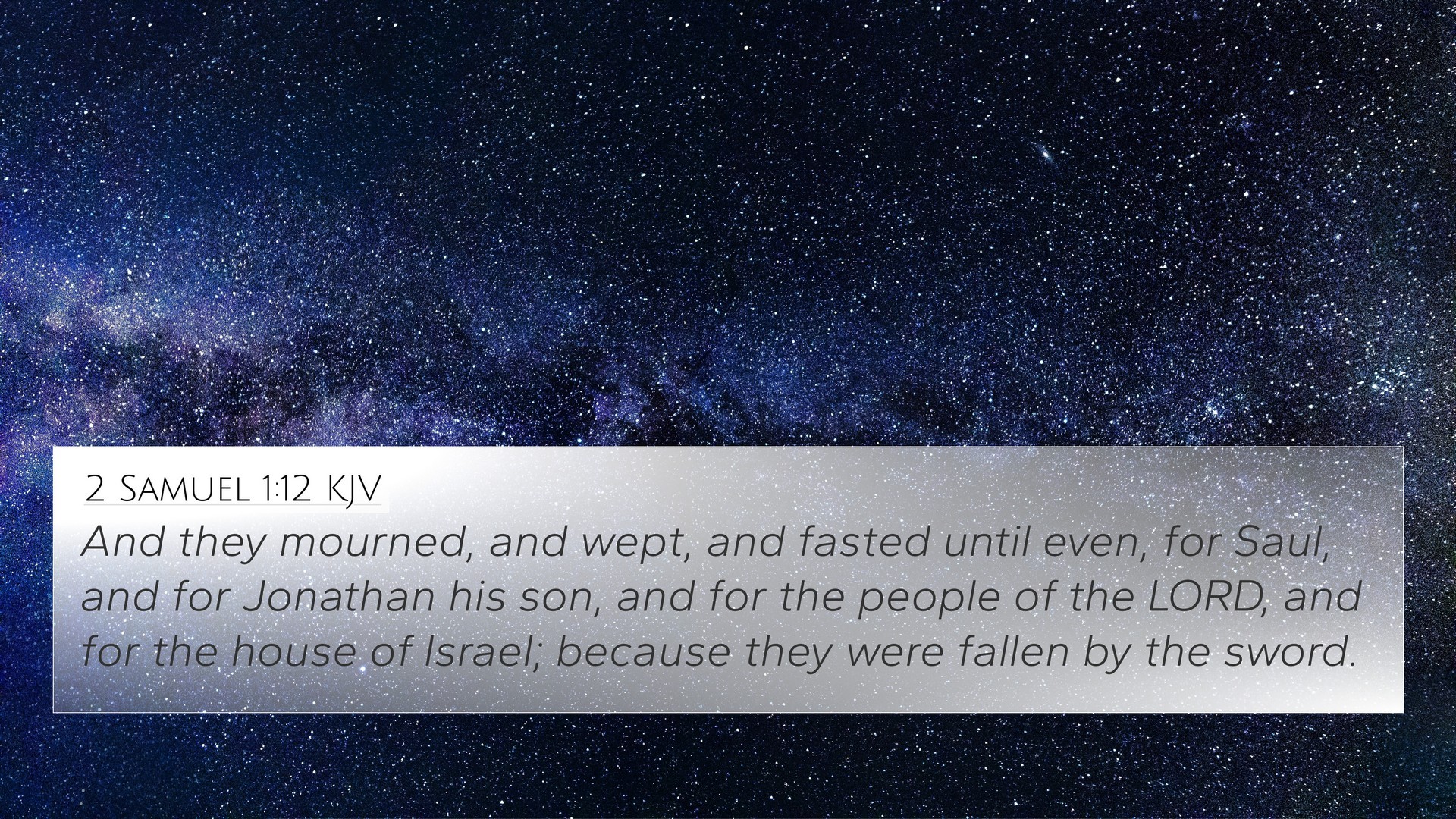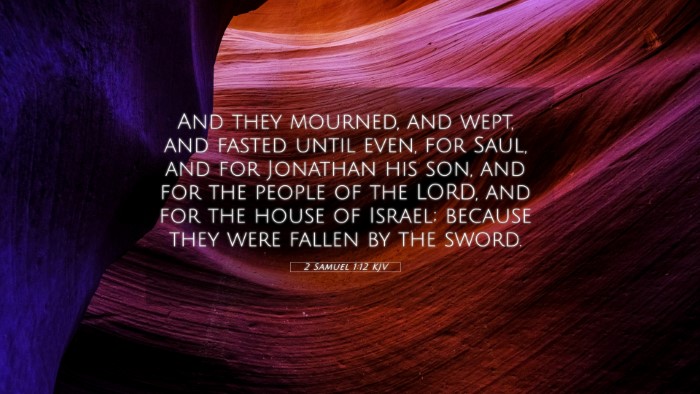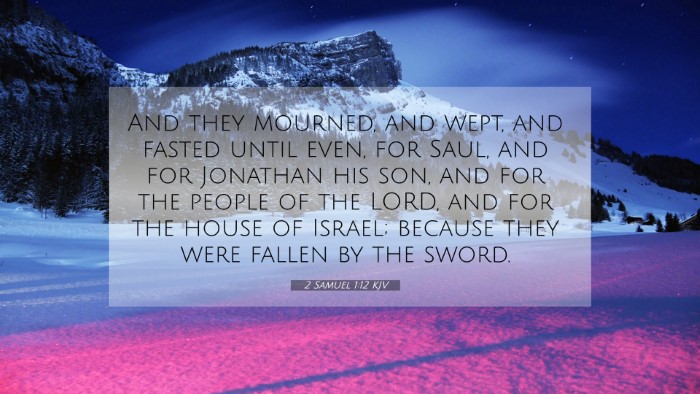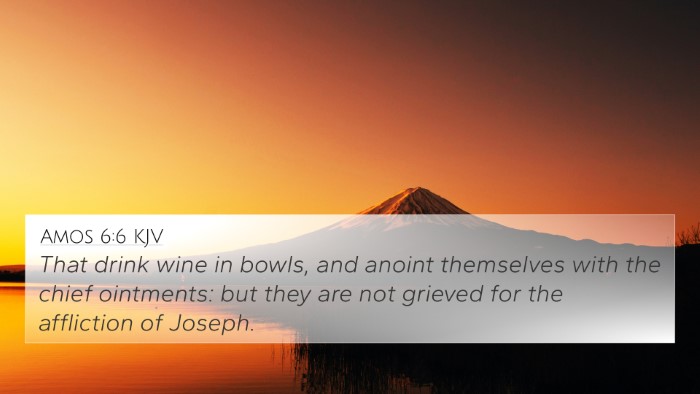Understanding 2 Samuel 1:12
Verse: "And they mourned, and wept, and fasted until even, for Saul, and for Jonathan his son, and for the people of the LORD, and for the house of Israel; because they were fallen by the sword." (2 Samuel 1:12)
Introduction
This verse captures the deep mourning and grief experienced by David and his men following the deaths of Saul and Jonathan. It reflects the profound impact of loss within the Israelite community, highlighting their sorrow for fallen leaders and the people of the LORD. This moment also has theological implications concerning the relationship between kingship, loyalty, and God’s covenant with Israel.
Commentary Insights
Various commentaries provide valuable insights into the significance of this verse:
-
Matthew Henry:
Henry emphasizes the emotional response of David and his men, illustrating that mourning was an appropriate response to the loss of their king and friend. He notes that fasting signifies their deep sorrow and a communal recognition of the tragedy that had befallen their nation.
-
Albert Barnes:
Barnes points out that this mourning signifies not merely personal grief but also a national tragedy, indicating how intertwined personal and communal identities are in Israel's history. He also emphasizes the relationship between David and Jonathan as a model of friendship and loyalty even amidst tragic circumstances.
-
Adam Clarke:
Clarke interprets the act of fasting in this context as a means of seeking divine favor and understanding amidst great loss. He highlights that this moment marks David's transition from a fugitive to a legitimate leader who would soon reign over Israel.
Thematic Connections
This verse not only highlights the mourning for Saul and Jonathan but also introduces important themes related to leadership, loss, and divine purpose in the face of tragedy. These themes resonate with various other scriptural references:
- 1 Samuel 16:13 - The anointing of David as king, setting the stage for the leadership role he will soon assume.
- 2 Samuel 2:1-4 - David inquires of the LORD about becoming king over Judah, furthering the narrative of his leadership.
- Proverbs 14:32 - Offers insight into the righteousness of the faithful which contrasts with the fall of Saul, reflecting the moral consequences of leadership.
- Psalm 78:70-72 - References God's choice of David and his shepherding role over Israel, underlining Israel's need for godly leadership.
- Ecclesiastes 3:4 - Speaks about the season for mourning, a universal theme aligning with the response seen in this verse.
- Isaiah 53:3 - Relates to the suffering servant and the concepts of grief and loss prevalent in the community of faith.
- Lamentations 3:19-24 - Expresses the sentiments of loss and hope amidst sorrow, aligning thematically with this passage.
Cross-Referencing in the Bible
This verse stands as a critical point for understanding the emotional and spiritual dimensions of mourning in the Bible. For those interested in deeper studies, the following tools for Bible cross-referencing can provide extensive insights:
- Utilizing a Bible concordance to locate related themes and words.
- Exploring a Bible cross-reference guide to discover additional supporting texts.
- Engaging in cross-reference Bible studies to trace thematic connections throughout the Scriptures.
Conclusion
2 Samuel 1:12 encapsulates a moment of profound sorrow which serves to reflect on the nature of leadership, friendship, and the community's relationship with God through loss. By examining this verse through various biblical lenses and connecting it to other scriptural texts, we gain a richer understanding of the implications of mourning in the context of faith, leadership, and God's plan for His people.










